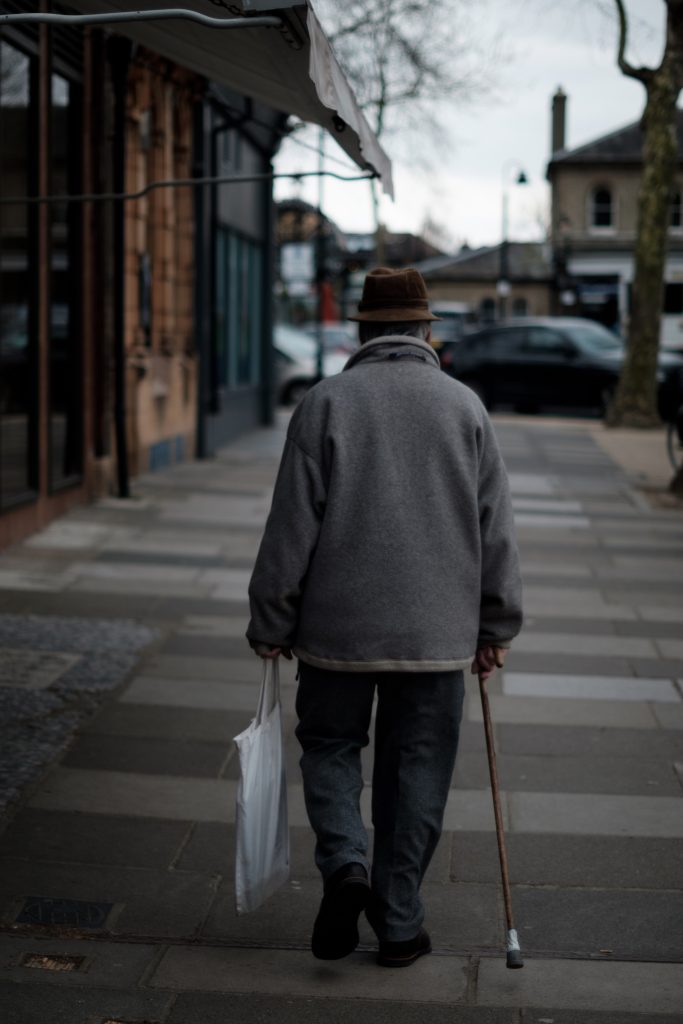There are many challenges that come with taking care of someone suffering from the effects of Alzheimer’s and Dementia. One of the biggest fears families face is a loved one wandering and getting lost. The term used most often for this is elopement and it refers to someone in a clinical setting leaving, whether on purpose or by accident, when they are not supposed to. While this happens for a variety of people, those suffering from Alzheimer’s and Dementia are particularly at risk from this behavior. At Cotter House Central Ohio, we aim to curb elopement and limit the possible consequences in a variety of ways including using the latest technology in our facility.
What You Need to Know
According to the Alzheimer’s Association, six in ten people with dementia will wander without supervision at some point while suffering from the disease. Elopement is common not just in home settings, but even in care communities. When someone with Dementia elopes, their risk of getting lost or injured are much higher than most other diseases. For instance, many might not be in a place to remember where they are from, how to get a hold of someone who knows them, or even provide someone with their name. In Worthington, we also have to worry about the winters and how prolonged exposure to frigid temperatures can be harmful to seniors.
Warning Signs
Some signs to look for when assessing the risk of elopement comes from observing a senior’s behavior:

- Forgetting Familiar Places: If a senior’s memory has deteriorated to the point that they can no longer remember how to get to familiar places, this puts them at risk of getting lost more easily.
- Mentions Needing to go to Work: This is common. A loved one will mention needing to be at work or somewhere they regularly went when they no longer go or haven’t gone in a long time. When this happens, the senior is more likely to try and leave without notifying anyone as it would feel normal to leave for somewhere like work.
- Says They Want to go Home, Even When Home: Another common occurrence that happens in care communities and homes alike. When they begin to not recognize their surroundings, their risk for attempting to leave rises.
Strategies for Safety
Here are some of the ways we combat elopement at Cotter House Central Ohio that can also be used in your own home:
- Keep a Routine: This is extremely important for anyone suffering from any form of Dementia. For the purposes of elopement, a strong routine can keep them aware of their surroundings and understand where they need to be next rather than leaving to somewhere unfamiliar.
- Reassurance: When a loved one begins talking about leaving, it is hard not to correct them. But often, correcting them can lead to more confusion and difficult behaviors. Instead, focusing on them being right where they need to be and that you are there with them can be a way to deescalate the situation in a safer manner.
- Meet Basic Needs: At Cotter House Central Ohio, we make sure that all the needs of our residents are met from full nutritious meals to social interaction. With needs met, our residents are less likely to feel that they need to leave to obtain something elsewhere.
- Devices that Signal Open Doors or Windows: There are a myriad of devices that can help notify when an exit has been opened and varying costs to fit any budget.
Blue Willow

At Cotter House Central Ohio, we also use some of the latest wearable technology to help keep our residents safe. Blue Willow is an incredible company that has created GPS bracelets for use in care communities just like ours to keep residents safe and give loved ones and staff alike the peace of mind that comes with that safety. With Blue Willow, we are able to keep track of any of our resident on our grounds. It will let us know if a resident is in an area that is off limits or if they are attempting to leave the building. Another feature of Blue Willow is fall detection for another layer of protection for our residents. We also equip each of our staff members with Blue Willow bracelets so we can send the closest staff member to help a resident when they attempt to leave or fall and may need assistance.
We are committed to keeping our residents safe and to helping alleviate the anxiety that comes with bringing a loved one into the care of someone else. We believe that caring the right way means using the best, applicable technologies and techniques in our facility. Our level of dedication and love for our residents is what sets us apart at Cotter House Central Ohio, and we want our families and our residents to feel that difference everyday.
